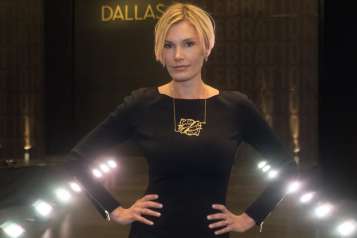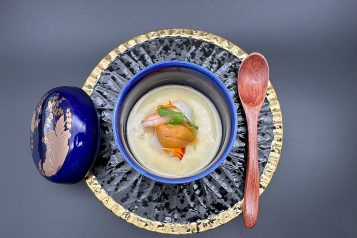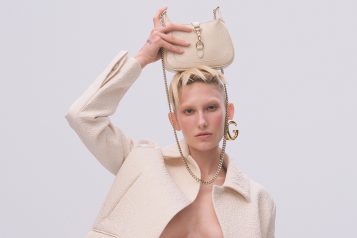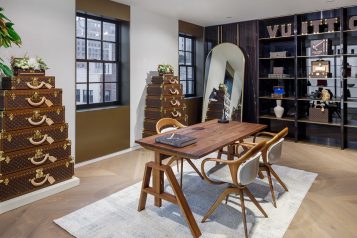
Photo Credit: Iwan Baan courtesy of The Broad and Diller Scofidio + Renfro
Just in time for Earth Day, the U.S. Green Building Council has awarded Eli and Edythe Broad’s new art museum, The Broad, with a LEED (Leadership in Energy and Environmental Design) Gold certification for LEED New Construction.
The Broad is the first major art museum in Los Angeles and one of only a handful of museums nationwide to achieve LEED Gold status thanks to environmentally friendly features such as electric car charging stations, bike parking spaces, rooftop drains routed to street level gardens that filter runoff and high-efficiency plumbing fixtures that help reduce indoor water use by 40 percent. In addition, with easy walking access to residential and commercial buildings, restaurants and other cultural amenities and close proximity to public transit and adjacency to the new Metro Regional Connector station at the corner of 2nd and Hope streets (anticipated opening: 2021), The Broad aims to be in the top tier of eco-conscious, efficient and sustainable museums.
The Broad, a 120,000-square-foot, three-story building includes 21,000-square-feet of collection storage and 50,000 square feet of gallery space, and sits atop a three-story parking garage, which opened in 2015, worked with Diller Scofidio + Renfro, Gensler and MATT Construction throughout the design and build process on comprehensive sustainability initiatives, including:
Use of daylighting
- The Broad’s 35,000-square-foot third-floor gallery space was designed to provide ample lighting without using any electric light during most days of the year.
- Protecting artwork from damaging light while also drawing natural light into the building to create ideal viewing conditions for that art is central to the building’s design. The entire structure, including the carefully calibrated veil structure and skylights, serves as a light filtration device, bringing indirect, filtered natural light into the galleries in a controlled way.
- The third-floor gallery skylights are digitally monitored to control the amount of northern light that is allowed in at any time. In addition, each skylight is fitted with blackout shades to enable the museum to eliminate natural light when needed. One of the world’s leading day-lighting engineers, Andy Sedgwick of Arup in London, oversaw the development and execution of the veil and skylights.
- The addition of daylight in the building makes for a healthier and more comfortable environment for the museum’s employees and visitors
Energy reduction and clean energy
- The use of more efficient heating, cooling and lighting systems yields the museum an estimated 18% energy savings annually.
Additionally, The Broad offset a portion of its electricity consumption through the purchase of a two year renewable energy credit (REC), which not only promotes further development of renewable energy facilities but also reduces the museum’s nonrenewable electricity production.
Energy efficient lighting and LEDs
- The Broad shares a centralized chilled water plant serving multiple properties downtown, increasing efficiency, reducing energy consumption and limiting the amount of heat that is introduced into the atmosphere.
- The third-floor gallery skylights are outfitted with exterior sensors that monitor the amount of diffused sunlight coming into the galleries. The LED lights in the galleries slowly turn on when sunlight levels drop below a certain level, allowing for the galleries to be lit solely by diffuse natural light during a majority of daylight hours.
- The custom LED wallwasher and spotlight fixtures created with Litelab all produce light with very low UV content and are automatically controlled to turn off when the museum is closed.
- Though halogen lights were considered for both ceiling heights and cost (LED lights cost about three times the amount of halogen lights), The Broad opted to use LED lights so the museum would utilize an environmentally conscious and beautiful lighting system while reducing energy usage and greenhouse gas emissions.
- Attention to alternative transportation
- The parking garage includes 10 electric vehicle charging stations and covered bike parking, with additional spaces and racks added to accommodate increased demand after the museum opened.
- With a central location in downtown Los Angeles, The Broad is within easy walking distance of numerous locations and encourages visitors to reduce the use of automobiles and greenhouse gas emissions, aligning with Los Angeles’ Climate Action Plan.
- The Broad is easily accessible by public metro and bus transit and is adjacent to the new Metro Regional Connector station at the corner of 2nd and Hope streets (anticipated opening: 2021), which will improve access to both local and regional destinations by providing continuous through service between the Gold, Blue, Expo, Red and Purple Lines, and providing connectors to other rail lines via the 7th Street/Metro Center Station.
- The museum offers employees free Metro Tap cards as incentive to take alternate transportation to work.
- Pedestrian traffic flow along Grand Avenue was improved with the addition of The Broad’s public plaza, two large stairways that provide access from Hope Street to Upper Grand, and the construction of a new crosswalk across Grand Avenue, all of which creates a walkable link from the Metro Regional Connector station through the plaza and across to the many cultural resources and institutions along Grand Avenue.
During construction, MATT Construction diverted over 80 percent of the onsite generated construction waste from landfills. - 20 percent of materials used onsite were made of recycled content, including the concrete fly ash.
- The public plaza adds another critical green space to downtown Los Angeles, offsetting the heat island effect and providing a shared space for multiple public purposes, including enjoyment and picnicking by museum visitors and programming offered by The Broad throughout the year.
- The plaza lawn and the associated rainwater system serve as the SUSMP (standard urban stormwater mitigation plan), an essential biofiltration system for stormwater runoff from the plaza hardscape and restaurant roof.
- With the plaza, the crosswalk and the streetscape improvements along Grand Avenue, 2nd Street and Hope Street, The Broad has added over 20 trees, including 14 100-year-old Barouni olive trees, to the area.
Water reuse and efficiency
The museum’s high-efficiency plumbing fixtures reduce indoor water use by 40 percent.




















